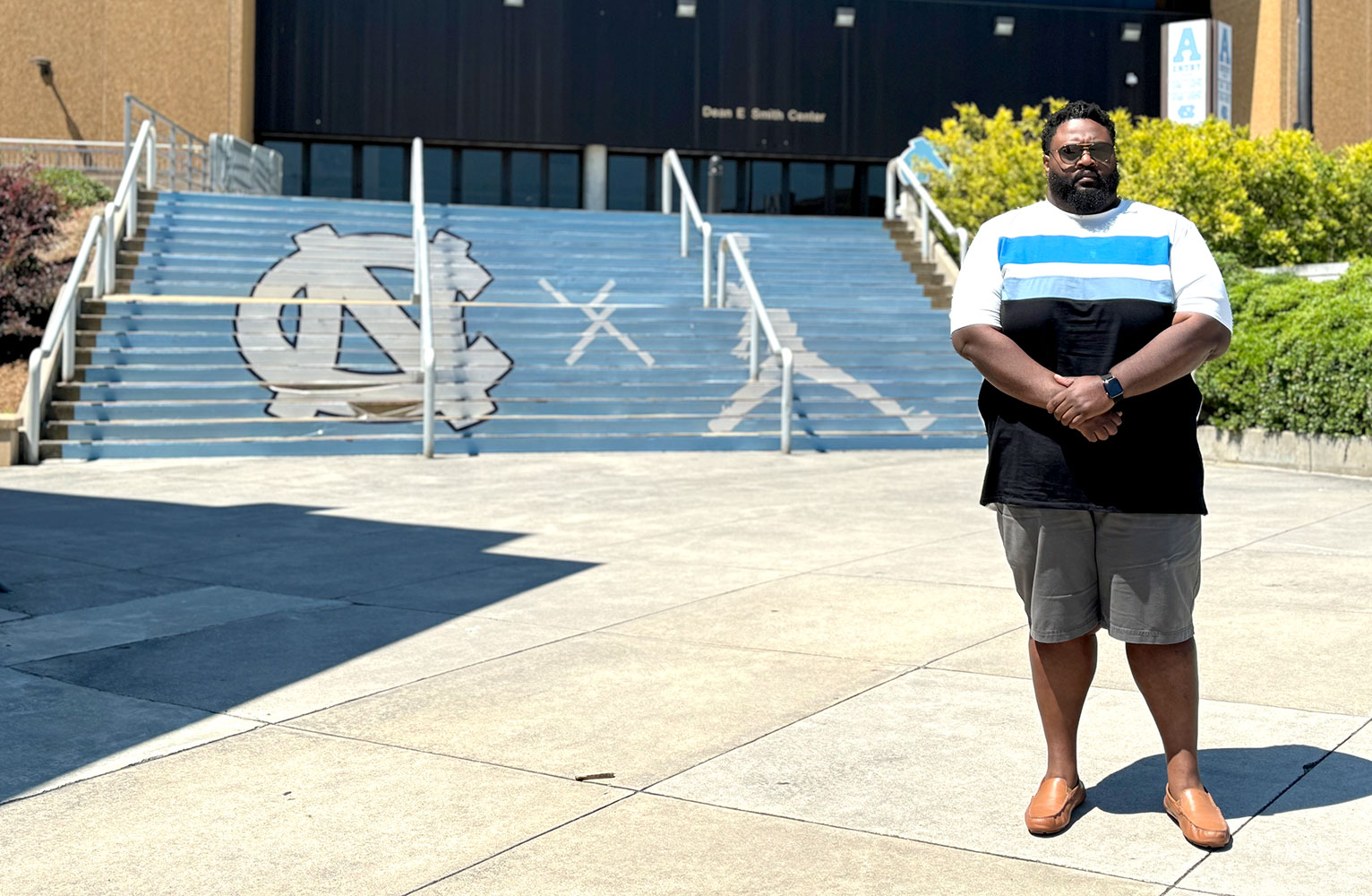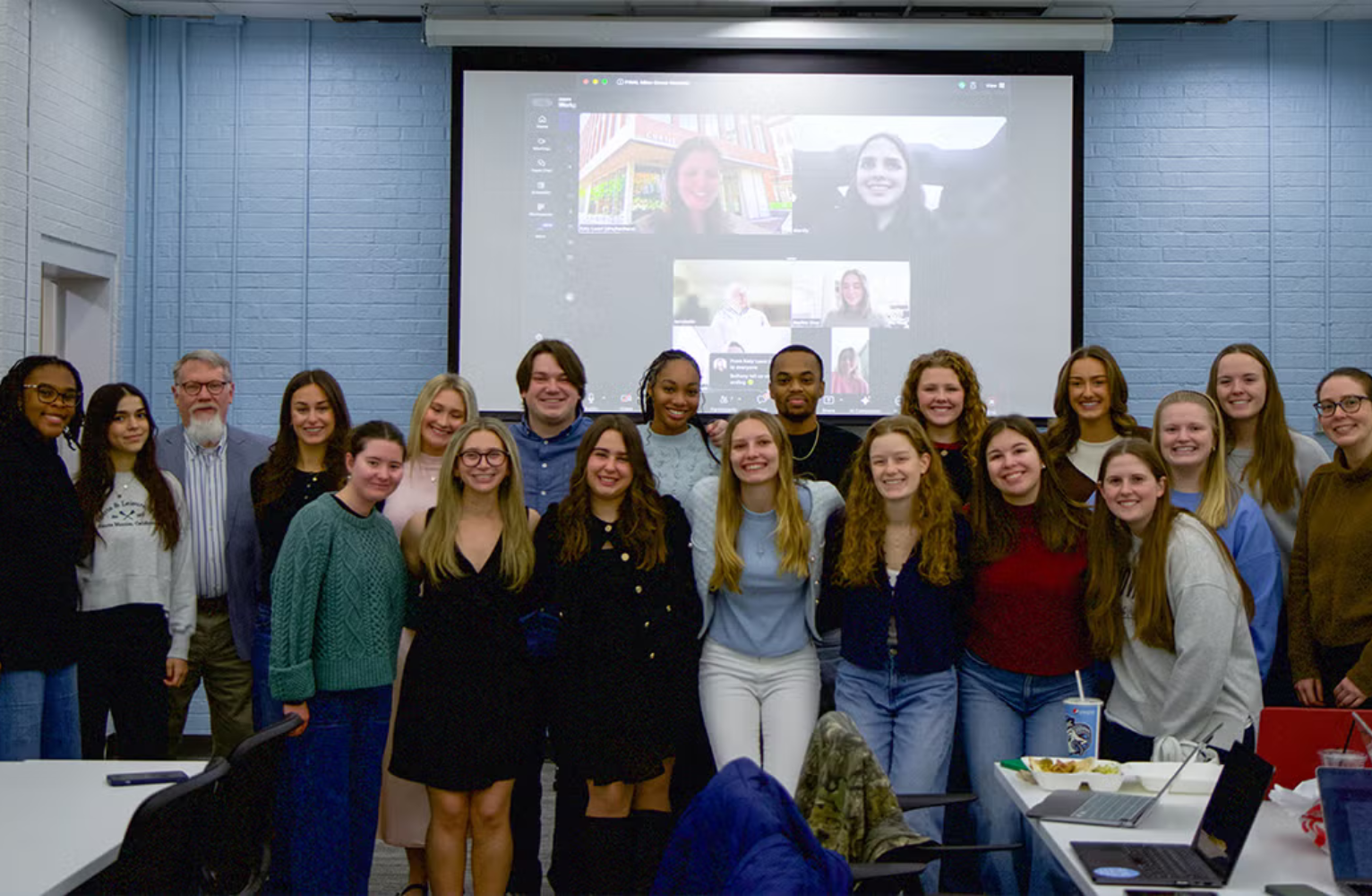
Shaun Anderson, Knight Chair in Sports, Race and Media in the UNC Hussman School of Journalism and Media, on how NIL rights have affected student-athletes.
Shaun Anderson planned to be a sports broadcaster until his interest shifted to the human interest side of sports early in his Ph.D. program. A community outreach coordinator for a Major League Baseball team reached out to Anderson looking for help as the team wanted to create programs to support urban youth in the area, but didn’t know how to reach them.
For Anderson it was a turning point, and from then on he has studied how the glory of sports can be impactful to society. Today his research focuses primarily on how sports function as a global platform for change. One of the topics he has explored is how the sea change of granting name, image and likeness rights to college athletes has influenced their ability and willingness to advocate for themselves and the causes they care about.
How has receiving NIL rights affected student-athletes’ ability to use their platform to support social causes?
ANDERSON: When NIL debuted it really shed a light on athletes and the issues they had faced as people whom administrators had earned money off of, but who hadn’t had the right to support themselves by profiting off their own name, image or likeness. Receiving NIL rights ushered in a new wave of athlete rights and responsibilities.
While a common objection to NIL rights has been that students would waste the money, data has shown that student-athletes use a significant share of NIL funding to support relatives who are struggling financially and to benefit social causes. Mental health services have been one of the most frequently championed causes among student-athletes. In fact, student-athletes have been so vocal about the need for mental health services that a number of athletic programs have taken notice and introduced director of mental health positions to their staff.
NIL rights have introduced a level of safety to student-athletes who want to use their voices and platforms as they choose. A decade ago, a student-athlete may have rightfully feared that speaking out about certain causes or participating in protests would result in a loss of their scholarship, and thus their ability to support themselves. Now, with NIL rights allowing athletes to receive various streams of income outside of the institution, many athletes feel more comfortable advocating for the causes they believe in.
There has also been a growing sports justice movement around the world. High-profile athletes have historically remained silent on social issues, but over the past several years there has been a shift in which the world’s most elite athletes – like Simone Biles, Serena Williams, LeBron James and Carmelo Anthony – have publicly used their voices and their dollars to support social causes and push for policy change. I think this has also had an emboldening effect in showing student-athletes that even top athletes can take a stand on issues that matter to them.
There are still big questions about the future of NIL. In June 2025 a new ruling established that athletes may be paid by universities directly, not just through sponsorships with third parties. Many of the specifics are still being worked out, so it’s yet to be seen how this will affect student-athletes.
Named chairs and professorships support renowned scholars and propel research at Carolina. These privately funded endowments help attract and retain the academic leaders of today, ensuring a state-of-the-art education for all Tar Heels.
As told to Audrey Smith
Photo submitted by subject
Related Stories




